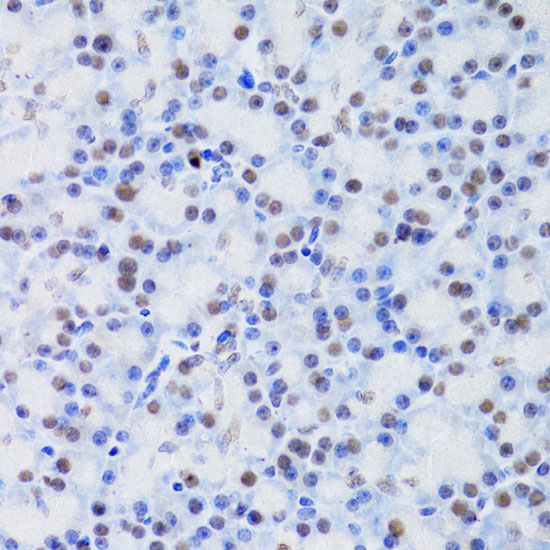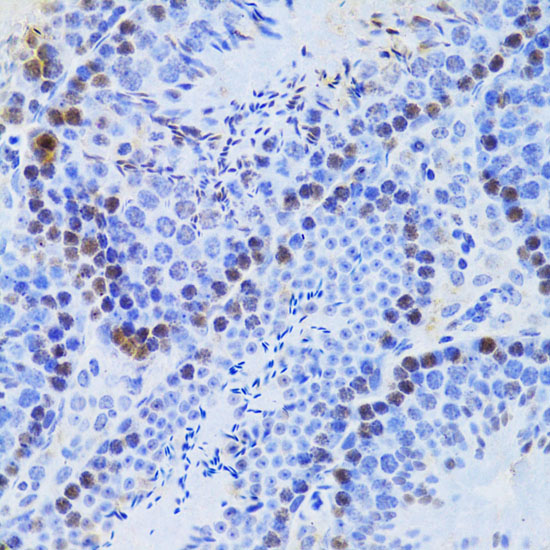Product Detail
Product NameJMJD6 Antibody
Host SpeciesRabbit
ClonalityPolyclonal
PurificationAntibodies were purified by affinity purification using immunogen.
ApplicationsWB,IHC,IF
Species ReactivityHuman,Mouse,Rat
SpecificityThe antibody detects endogenous level of total JMJD6 protein.
Immunogen TypeRecombinant Protein
Immunogen DescRecombinant protein of human JMJD6.
Target NameJMJD6
ConjugateUnconjugated
Other NamesPSR; PTDSR; PTDSR1;
Accession NoSwiss-Prot:Q6NYC1
NCBI Gene ID:23210
Uniprot
Q6NYC1
Gene ID
23210;
Sdspage MW46KD
Concentration1.0mg/ml
FormulationSupplied at 1.0mg/mL in phosphate buffered saline (without Mg2+ and Ca2+), pH 7.4, 150mM NaCl, 0.02% sodium azide and 50% glycerol.
StorageStore at -20˚C
Application Details
WB 1:500 - 1:2000
IHC 1:50 - 1:100
IF 1:50 - 1:100
Immunohistochemistry of paraffin-embedded rat pancreas using JMJD6 at dilution of 1:100 (40x lens).
Immunohistochemistry of paraffin-embedded human gastric cancer using JMJD6 at dilution of 1:100 (40x lens).
Immunohistochemistry of paraffin-embedded mouse testis using JMJD6 at dilution of 1:100 (40x lens).
Western blot analysis of extracts of mouse liver, using JMJD6 at 1:1000 dilution.
This gene encodes a nuclear protein with a JmjC domain. JmjC domain-containing proteins are predicted to function as protein hydroxylases or histone demethylases. This protein was first identified as a putative phosphatidylserine receptor involved in phagocytosis of apoptotic cells; however, subsequent studies have indicated that it does not directly function in the clearance of apoptotic cells, and questioned whether it is a true phosphatidylserine receptor. Multiple transcript variants encoding different isoforms have been found for this gene.
If you have published an article using product 33079, please notify us so that we can cite your literature.
et al,KRas-ERK signallIng promotes the onset and maIntenance of uveal melanoma through regulatIng JMJD6-mediated H2A.X phosphorylation at tyrosIne 39.In Artif Cells Nanomed Biotechnol on 2019 Dec by Li Y, Yu P, et al..PMID:31736361
, (2019),
PMID:
31736361






 Yes
Yes



